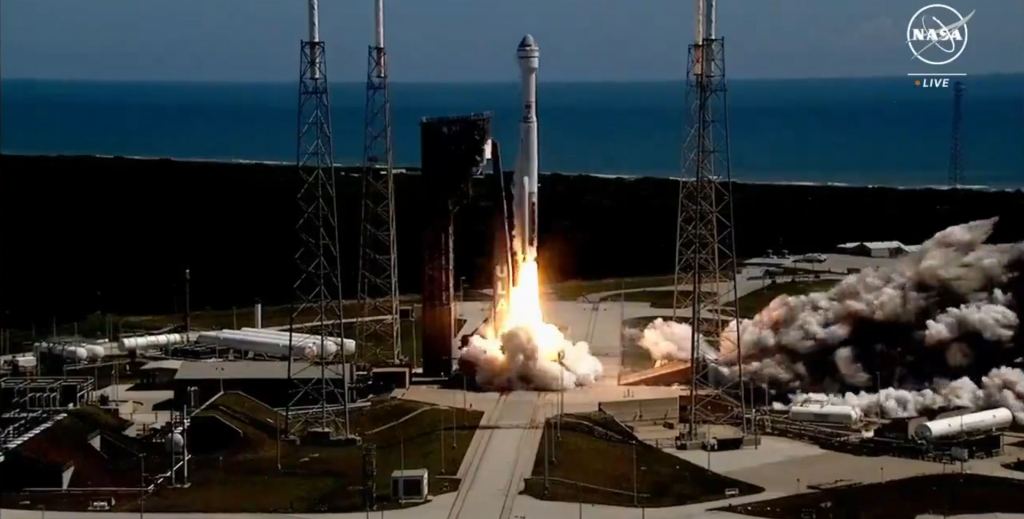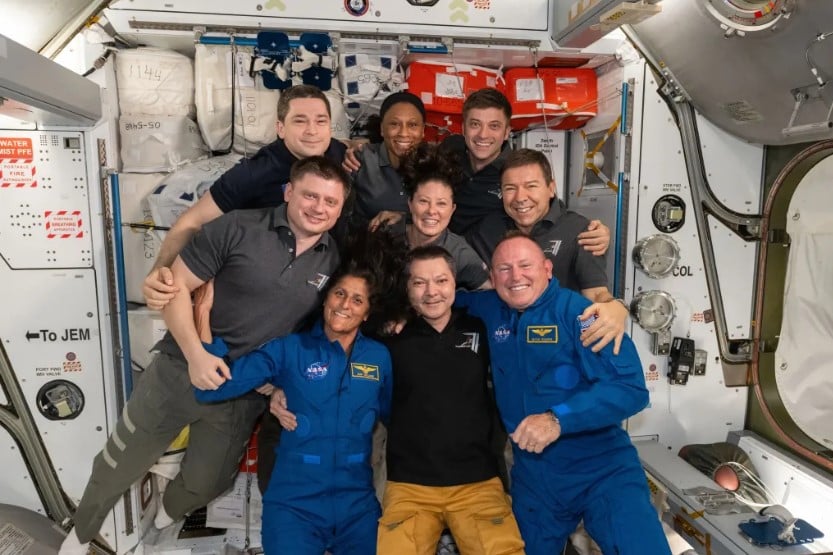After helium leaks and thruster problems with Boeing's Starliner capsule, NASA has been pushing back the return date from the International Space Station. On Friday, the agency announced they no longer had a planned return date. Instead, they will keep testing the capsule, trying to understand its issues, and seeing if they can make any fixes. Plenty of supplies are on the station, so there's no urgent need to bring the two astronauts back to Earth.
Another reason NASA decided to cancel the planned departure of Wednesday, June 26 is because of conflicting timelines with a series of planned spacewalks on the ISS, set for today (Monday, June 24), and Tuesday, July 2. The delay also allows mission teams time to review propulsion and system data.
After years of delays and two recent scrubbed launch attempts, Starliner finally launched on June 5, 2024 with NASA astronauts Butch Wilmore and Suni Williams on board. Although two of the spacecraft's thrusters failed during the flight, the spacecraft managed to reach the ISS and delivered 227 kg (500 lbs) of cargo. Additionally, five small leaks on the service module were also detected, and the crew and ground teams have been working through safety checks.
"We are taking our time and following our standard mission management team process," said Steve Stich, manager of NASA's Commercial Crew Program in a NASA blog post. "We are letting the data drive our decision making relative to managing the small helium system leaks and thruster performance we observed during rendezvous and docking. Additionally, given the duration of the mission, it is appropriate for us to complete an agency-level review, similar to what was done ahead of the NASA's SpaceX Demo-2 return after two months on orbit, to document the agency's formal acceptance on proceeding as planned."
Safety and gaining a better understanding of the issues with Starliner are NASA and Boeing's motivations for the delay in returning the spacecraft and crew back to Earth.
Loading tweet...
— View on Twitter
This first crewed flight of Starliner was supposed to validate the spacecraft as part of NASA's Commercial Crew Program (CCP), with the hope of it working alongside SpaceX's Crew Dragon to make regular deliveries of cargo and crew to the ISS. This mission is the second time the Starliner has flown to the ISS and the third flight test overall. During the first uncrewed test flight (OFT-1), which took place back in December 2019, the Starliner launched successfully but failed to make it to the ISS. After making 61 corrective actions recommended by NASA, another attempt was made (OFT-2) on May 22nd, 2022. That flight successfully docked to the ISS, staying there for four days before undocking and landing in the White Sands Missile Range in New Mexico.
Wilmore and Williams are now working with the Expedition 71 crew, assisting with station operations as needed and completing add-on in-flight objectives for NASA's certification of Starliner.
Stich said that despite all the issues, Starliner is performing well in orbit while docked to the space station.
"We are strategically using the extra time to clear a path for some critical station activities while completing readiness for Butch and Suni's return on Starliner," he said, "and gaining valuable insight into the system upgrades we will want to make for post-certification missions."
Mission managers will evaluate future return opportunities for Starliner and NASA said they will host a media telecon with mission leadership following a readiness review. NASA added that Starliner is actually cleared for return in case of an emergency on the space station that would require the crew to leave orbit and come back to Earth.
 Universe Today
Universe Today


